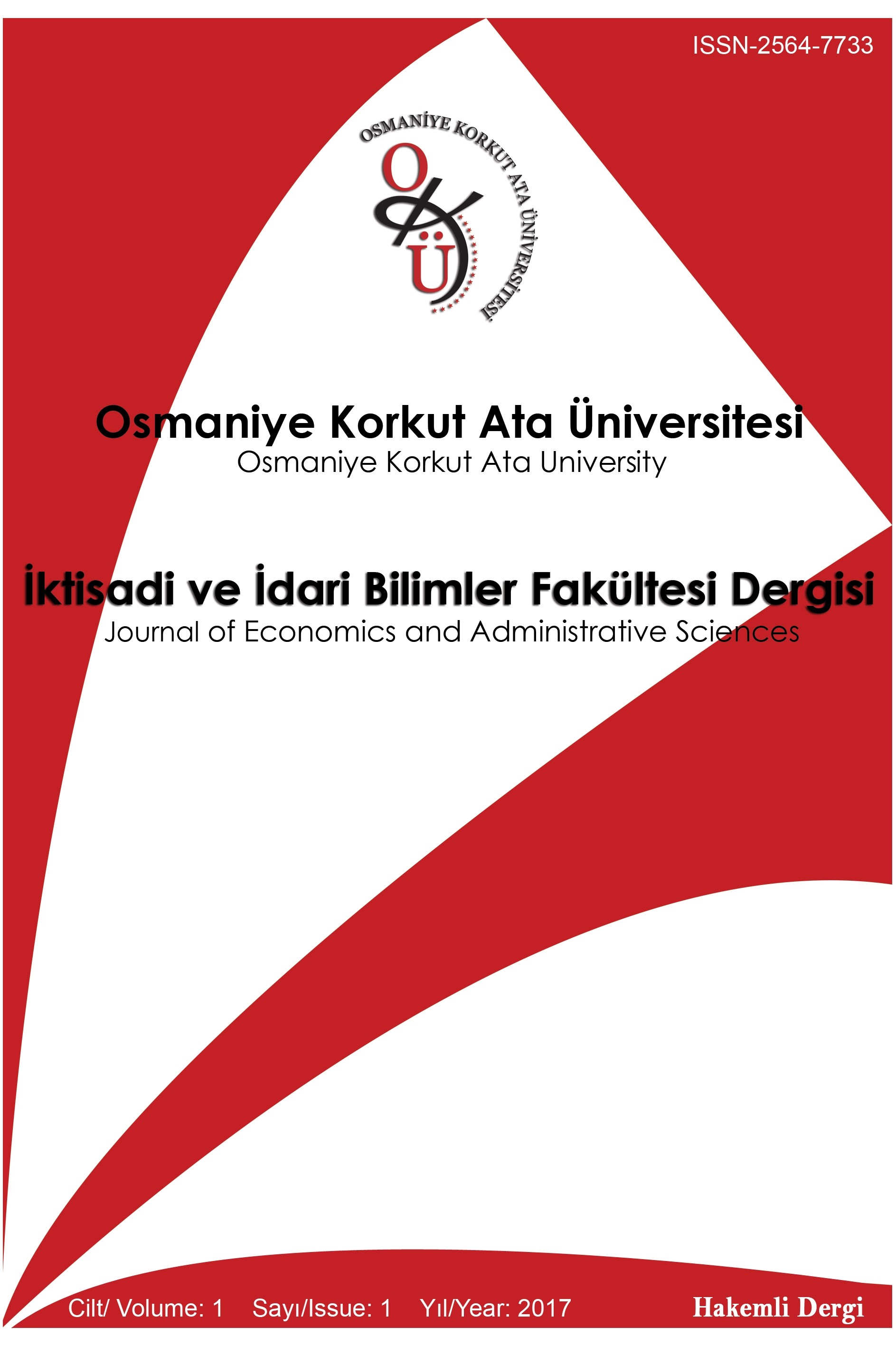POLONYA VE TÜRKİYE'DE YEREL ÖZYÖNETİM BİRİMLERİNİN ROLÜ
Bu makale, Polonya ve Türkiye'de yerel özyönetim işleyişinin genel modeli ışığında yasal görevlerinin analizine dayalı olarak, yerel özyönetim temel biriminin görev ve sorumluluklarını belirlemeyi ve tanımlamayı amaçlamaktadır. Polonya ve Türkiye gibi ülkelerde, yerel özyönetimlerin işlevsel şeması farklılaşmıştır. Farklılaşma, tarihsel gelişimin ve dolayısıyla devletin doğasının ve ikincillik ilkesinin uygulanmasının bir sonucudur. Türkiye ve Polonya'daki yerel özyönetimlerin şekli ve rolleri, şüphesiz bu ülkelerin genel kalkınma yollarıyla örtüşmektedir. Ayrıca bölgelerinin sosyo-ekonomik durumunu da giderek daha fazla etkiliyorlar. A. Kożuch'un haklı olarak işaret ettiği gibi, yerel sosyal, politik ve idari sistemlerde yönlendirici bir işlev görürler. Ancak rolleri sınırlandırılmamalıdır. Önemli olan, idare organlarının düzgün işlemesine yardımcı olduğu için, yerel özyönetimin bu şekilde geliştirilmesidir.
Anahtar Kelimeler:
Yerel Yönetimin Rolü, Yerel Yönetimler, Sivil Toplum, Sahip Olunan ve Devredilen Görevler, Yerel Özyönetim, İdari Bölünme, Role of Local Government, Local Authorities, Civil Society, Own and Delegated Tasks, Local Self-Government, Administrative Division
THE ROLE OF LOCAL SELF-GOVERNMENT UNITS IN POLAND AND TURKEY
This article aims to identify and define the duties and responsibilities of the basic unit of local self-government, based on the analysis of its statutory tasks in view of the general model of local self-government functioning in Poland and Turkey. In countries such as Poland and Turkey the functional scheme of local self-governments is differentiated. The differentiation is a result of historical development and thus the nature of the state and the implementation of the principle of subsidiarity. The shape and roles of local self-governments in Turkey and Poland undoubtedly correspond to the overall development paths of these countries. They also increasingly influence the socio-economic situation of their regions. As A. Kożuch has rightly pointed out, they perform a steering function in the local social, political and administration systems. Yet, their roles should not be limited. What is important is the development of local self-governance as such, as it is conducive to proper functioning of the administration bodies.
Keywords:
Role of Local Government, Local Authorities, Civil Society, Own and Delegated Tasks, Local Self-Government, Administrative Division,
___
- Uslubaş, T. (2013). Geçmişten Günümüze Türkiye, Istanbul: Iconinn Press.
- Zürcher, E. J. (2013). Turcja. Od sułtanatu do współczesności, translation: A. Gąsior-Niemiec, Kraków, 2–3.
- Heper, M. (1990). Turkey [in:] V. Subramaniam (ed.), Public Administration in Third World, Greenwood Publishing Group.
- Örūcü, E. (2000). Conseil D'Etat: The French Layer of Turkish Administrative Law. International & Comparative Law Quarterly, 49(3), 679-700.
- www.tuik.gov.tr (access 26.05.2022) Ansay, T., Wallace Jr., D., & Önay, I. (Eds.). (2020). Introduction to Turkish law. Kluwer Law International BV.
- Wlaźlak, K. (Ed.). (2021). Rozwój regionalny jako zadanie administracji publicznej. Wolters Kluwer Polska.
- Klat-Wertelecka, L. (1998). Problem samodzielności gmin a ochrona praw podmiotowych jednostki. Samorząd Terytorialny, (10).
- Bojar-Fijałkowski, T. (2011). Prawo uzdrowiskowe w Polsce–stan i perspektywy,[w:] Turystyka zdrowotna i uzdrowiskowa. Boruszczak M.(red.), WSTiH, Gdańsk.
- Skrzydło, W. (1999). Konstytucja Rzeczypospolitej Polskiej. Komentarz, Zakamycze, Kraków.
- Chmielnicki P. (2009). Konstytucyjny system władz publicznych, LexisNexis, Warsaw.
- Act of 3 July 2005. It is related to the Municipal Law No. 5393 and has been replaced.
- The Constitution of the Turkish Republic adopted by referendum on 7 November 1982, Act No. 2709
- The Constitution of the Republic of Poland. (1997), Journal of Laws, 78, 483)
- Based on Pursuant to the regulation of the Act of 5 January 2011 on the Election Code, the Polish Journal of Laws No 21, item. 112 as amended.
- Act of 8 March 1990 on Communal Self-Government, the Polish Journal of Laws 142, item 1591 as amended. Wiktorowska, A. (2002), Prawne determinanty, Lex/el.
- ISSN: 2564-7733
- Yayın Aralığı: Yılda 2 Sayı
- Başlangıç: 2017
- Yayıncı: Osmaniye Korkut Ata Üniversitesi
Sayıdaki Diğer Makaleler
MUHAFAZAKÂR VE İSLAMCI BİR DÜŞÜNÜR: SAİD HALİM PAŞA
OSMANLI BİRLEŞİK DEVLETLERİ DÜŞÜNCESİ: MUSTAFA REŞİT PAŞA’DAN MİDHAT PAŞA’YA OLUŞUM MEKANİZMALARI
Ömer Fazıl EMEK, Faruk DÜŞÜNCELİ
ÖRGÜT KÜLTÜRÜNÜN BİREYSEL YARATICILIK ÜZERİNE ETKİSİ: BİR ALAN ARAŞTIRMASI
KAPİTALİZMDE İKTİSADİ KÜÇÜLME MÜMKÜN MÜ? MALZEME AYAK İZİ VE CO2 İÇİN PANEL VERİ ANALİZİ
Esra KOÇAK, Yeliz SARIÖZ GÖKTEN
POLONYA VE TÜRKİYE'DE YEREL ÖZYÖNETİM BİRİMLERİNİN ROLÜ
Marcin MAMİŃSKİ, Susran Erkan EROĞLU
İTİCİ GÜÇLERİ VE SONUÇLARI İLE YEŞİL AKLAMANIN KAVRAMSAL ANALİZİ
